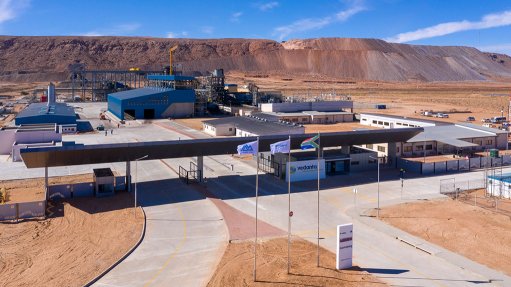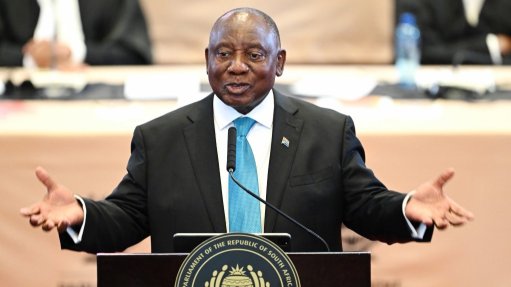Ethiopia’s electric leap
Ethiopia is not just a historical footnote as one of only three African countries to have dodged colonisation – alongside Sierra Leone and Liberia, which were established to resettle black loyalists who had fought for the British during the American Revolutionary War and freed American slaves respectively – but is revving up a new chapter as the first nation in the world to ban imports of fossil-fuel-powered vehicles.
The prohibition, which took effect in January, represents a dual win for the Horn of Africa country of 123-million, benefiting both its finances and the environment, as its fuel import bill has declined considerably and 96% of its electricity comes from clean hydropower.
Ethiopia’s push towards electric mobility gained momentum in 2022 with the unveiling of a bold ten-year plan to introduce more than 100 000 electric vehicles (EVs). Now, only two years later, its EV fleet stands at about 100 000, making up nearly one-tenth of the national total of 1.2-million. The EV fleet includes 15-seater buses, cars and motorbikes, with most to be found in Addis Ababa, the capital city.
Coinciding with the January fossil-fuel- vehicle import ban was the announcement of a vehicle import tax of only 15% – down from the previous 200% applicable to non-EV imports. This move, coupled with plans to boost local production, is expected to result in a quadrupling of Ethiopia’s EV fleet by 2032.
Of the 100 000-odd EVs on Ethiopia’s streets, hundreds were assembled locally by Belayneh Kindie Group using parts imported from China at tariffs of almost 0%.
Ethiopia’s aggressive promotion of clean modes of mobility, including a decision by the city fathers in Addis Ababa to not issue licences for fuel-powered motorbike taxis – which are immensely popular in East Africa – has been a significant boon for early adopters of EVs and e-bikes. Foreign currency is hard to come by in the country, making it challenging for Ethiopia to secure the $5-billion required each year for fuel imports. Consequently, snaking queues at filling stations are a common sight.
But EV drivers avoid them completely. One driver, who owns an imported Toyota Bz4X, proudly told a CNN reporter last month: “I no longer line up for petrol. A full charge is more than enough for two days.”
The 3 042 new-energy vehicles – comprising battery EVs and hybrids – sold in South Africa during the first quarter of this year illustrates how Ethiopia is leading the way in the continent’s transition to clean mobility.
But it’s encouraging that the South African government’s Electric Vehicle White Paper, released in December, highlights the need to transition the automotive industry to EVs and hybrids. Failing to do so could result in the loss of key markets for South African-assembled vehicles and components, including the UK and the EU, both of which plan to ban internal combustion engine (ICE) vehicles from 2035.
Although the South African government deserves praise for its commitment to supporting the manufacture and sale of new- energy vehicles in South Africa, its detractors are concerned about the Electric Vehicle White Paper’s emphasis on exporting these vehicles rather than boosting domestic demand during the first phase.
But while we are still debating the correctness or otherwise of the South African government’s approach to electric mobility, Ethiopia is forging ahead. If it continues on this trajectory, Prime Minister Abiy Ahmed’s reputation as an environmental champion will be solidified. The 2019 Nobel Peace Prize winner – who came to power in 2018 and was re-elected for a five-year term in 2021 – has spearheaded rapid, extensive reforestation campaigns, committing to plant five-billion trees by the end of this year. Additionally, in 2022, he inaugurated the massive Grand Ethiopia Renaissance Dam, which currently generates 1550 MW, with its future capacity expected to exceed 5 000 MW.
Ethiopia has already earned its stripes with a historic victory over Italian forces in 1896 and savvy diplomacy with European powers that helped it avoid colonisation. Now, with the distinction of being the first country to ban imports of polluting ICEs, it’s adding yet another feather to its cap, reinforcing its commitment to environmental sustainability and leadership on the world stage.
Article Enquiry
Email Article
Save Article
Feedback
To advertise email advertising@creamermedia.co.za or click here
Announcements
What's On
Subscribe to improve your user experience...
Option 1 (equivalent of R125 a month):
Receive a weekly copy of Creamer Media's Engineering News & Mining Weekly magazine
(print copy for those in South Africa and e-magazine for those outside of South Africa)
Receive daily email newsletters
Access to full search results
Access archive of magazine back copies
Access to Projects in Progress
Access to ONE Research Report of your choice in PDF format
Option 2 (equivalent of R375 a month):
All benefits from Option 1
PLUS
Access to Creamer Media's Research Channel Africa for ALL Research Reports, in PDF format, on various industrial and mining sectors
including Electricity; Water; Energy Transition; Hydrogen; Roads, Rail and Ports; Coal; Gold; Platinum; Battery Metals; etc.
Already a subscriber?
Forgotten your password?
Receive weekly copy of Creamer Media's Engineering News & Mining Weekly magazine (print copy for those in South Africa and e-magazine for those outside of South Africa)
➕
Recieve daily email newsletters
➕
Access to full search results
➕
Access archive of magazine back copies
➕
Access to Projects in Progress
➕
Access to ONE Research Report of your choice in PDF format
RESEARCH CHANNEL AFRICA
R4500 (equivalent of R375 a month)
SUBSCRIBEAll benefits from Option 1
➕
Access to Creamer Media's Research Channel Africa for ALL Research Reports on various industrial and mining sectors, in PDF format, including on:
Electricity
➕
Water
➕
Energy Transition
➕
Hydrogen
➕
Roads, Rail and Ports
➕
Coal
➕
Gold
➕
Platinum
➕
Battery Metals
➕
etc.
Receive all benefits from Option 1 or Option 2 delivered to numerous people at your company
➕
Multiple User names and Passwords for simultaneous log-ins
➕
Intranet integration access to all in your organisation


















